Your cart is currently empty!
Eltroxin
Eltroxin contains Levothyroxine (L-thyroxine) – a synthetic thyroid hormone; levogyrate isomer of thyroxine (T4). The action of Eltroxin is identical to the action of natural thyroid hormone – thyroxine which is produced by the thyroid gland. After biotransformation in the body in liothyronine (in the liver and kidneys), it enteters the body cells and exert regulatory […]
Description
Eltroxin contains Levothyroxine (L-thyroxine) – a synthetic thyroid hormone; levogyrate isomer of thyroxine (T4). The action of Eltroxin is identical to the action of natural thyroid hormone – thyroxine which is produced by the thyroid gland. After biotransformation in the body in liothyronine (in the liver and kidneys), it enteters the body cells and exert regulatory effect on the development, tissue growth and metabolism. Mechanisms of metabolic effects include receptor binding to the genome, changes in oxidative metabolism in mitochondria and regulation the flow of substrates and cations inside and outside the cells.
In medium doses Eltroxin stimulates growth and development, increases in oxygen demand of tissues, stimulates the metabolism of proteins, fats and carbohydrates, increases the functional activity of the cardiovascular and central nervous systems. In large doses Eltroxin inhibits the production of thyrotropin-releasing hormone of the hypothalamus (TTRG) and pituitary thyroid stimulating hormone (TSH).
Daily dose of Eltroxin is indicated individually in dependence of indications, functional condition of thyroid gland, the size of thyroid gland, age, weight, condition of cardiovascular system. Eltroxin is usually taken once daily in the morning on empty stomach 30 minutes before meal swallowing tablets with a small amount of water without chewing.
Side effects are: individual intolerance (including history of hypersensitivity to levothyroxine), untreated thyrotoxicosis (hyperthyroidism) of any origin, severe coronary insufficiency, acute myocardial infarction, angina pectoris, expressed atherosclerosis, acute myocarditis, severe arrhythmias, severe congestive heart failure, severe hypertension, uncontrolled adrenal insufficiency, untreated Addison’s disease, elderly patients (over 65). For replacement therapy hypersensitivity to levothyroxine is the only absolute contraindication.
Application of Eltroxin during pregnancy and breastfeeding. During pregnancy and lactation levothyroxine should be used under medical supervision. Eltroxin is well researched and there is no reason to assume toxic effects on the fetus or the development of defects. If you are pregnant, you should continue taking levothyroxine for the treatment of hypothyroidism. The use of Eltroxin in combination with thyreostatics is contraindicated because it can cause hypothyroidism in the fetus. Eltroxin should be used with caution during lactation (breastfeeding).
Eltroxin is well tolerated and side effects are not common. The use of high-doses of Eltroxin may cause hyperthyroidism symptoms such as tachycardia, arrhythmia, angina (chest pain), tremors, sleep disturbances, insomnia, fatigue, sense of anxiety, increased sweating, hyperhidrosis, loss of body weight (in some cases – a transient increase in body weight due to increased appetite), vomiting, diarrhea, hyperglycemia. In very rare cases Eltroxin may cause hair loss (alopecia), adrenal insufficiency, impairment of kidney function in children (at high initial doses).
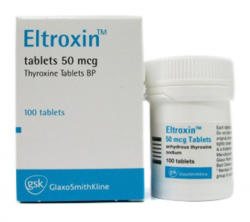
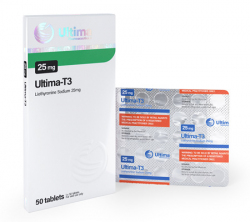
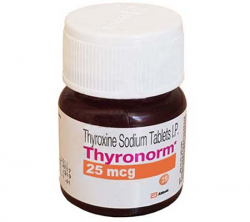
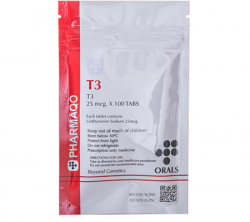
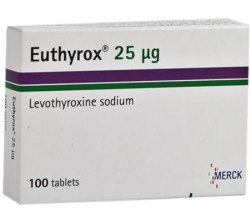
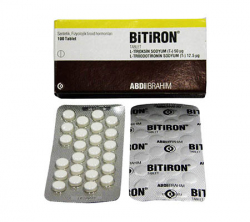
Reviews
There are no reviews yet.